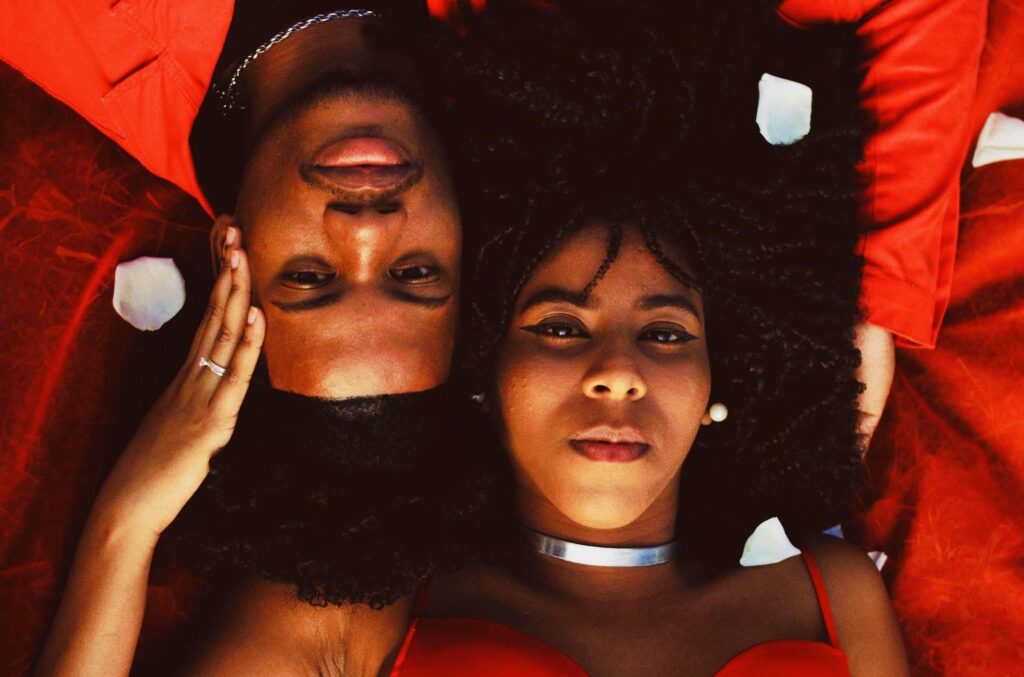What Film and TV Got Wrong About Black Love — And the One Couple That Got It Right

Love & Basketball. The Best Man. Love Jones. Just Wright. These films are constantly held up as representations of “Black love.” But are they really? Or are they just trauma-bonded rom-coms wrapped in good soundtracks and nostalgia? I’m here to challenge everything you thought you knew about how Black love is portrayed in the media — and to finally give flowers to the one couple who actually got it right.
Let’s Start With the Lies
I was having a random but interesting conversation with my 22-year-old cousin when the topic of love stories came up. She said something that hit me hard:
“There’s no such thing as a Black love story.”
At first, I agreed. Then I remembered Overton and Synclaire from Living Single — and had to rethink everything.
The “Classic” Black Love Stories Are Actually Just Red Flags
1. Love & Basketball
Quincy is self-absorbed. Monica sacrifices everything. Their love is built on convenience, history, and her chasing someone who barely acknowledges her worth. If a basketball game is the foundation of your relationship, throw the whole plot out.
2. The Best Man
A man writes a tell-all book exposing his best friend’s bride’s past, then spends the movie dodging fists and moral accountability. Harper is a walking red flag, and somehow, this mess is considered romantic?
3. Just Wright
Scott McKnight overlooks the woman who genuinely loves him (Leslie) for the one who wants clout (Morgan). He only realizes Leslie’s worth after Morgan dumps him. Too male-centered. Too performative. Too little, too late.
4. Love Jones
Vibes? Aesthetic? Sure. But the romance is unstable, selfish, and based on poor communication and worse decisions. Nina dips out for an ex and flirts with Darius’s friend. Darius delivers poetry instead of accountability. Cute cinematography doesn’t make this love.
These Aren’t Love Stories — They’re Cautionary Tales
We love these movies because they’re entertaining. Because they give us drama. But drama isn’t love. These women aren’t loved — they’re tested, traumatized, and tossed around until the man finally chooses them at the end. And somehow we’re supposed to swoon?
If “Black love” is defined by struggle, ego, secrets, and being someone’s emotional punching bag, count me out.
What Real Black Love Looks Like: Overton & Synclaire (Living Single)
Finally, let’s talk about the real MVPs. The blueprint. The dream.
1. Comfortable and Honest
They were quirky, silly, and real. They didn’t try to impress each other — they connected because they were fully themselves.
2. Mutual Acceptance
Overton loved Synclaire exactly as she was. She loved him for his blue-collar pride and gentle spirit. No one was trying to upgrade, fix, or save the other.
3. Independent but United
They had their own friends and lives outside of their romance. They weren’t codependent; they were interdependent.
4. Affectionate and Equal
They adored each other. They were playful, passionate, and obsessed — but in a healthy, reciprocal way.
So Why Is This Rare?
Because Hollywood doesn’t know what to do with healthy Black love. It doesn’t sell as easily. It doesn’t provide the tension and chaos that scripts thrive on.
But here’s the thing: love doesn’t have to be painful to be powerful.
And if Overton and Synclaire could show us anything, it’s that joy, softness, and mutual respect are revolutionary acts in a world that thrives on our heartbreak.
-Teri Nickels (Originally discussed on Medium.com by Teri Nickels)
What’s your idea of a real Black love story — and did the media shape it or shatter it? Drop a comment and let’s talk, because we deserve to define love for ourselves — not through someone else’s broken fantasy.

Leave a Reply to Rhonda Monroe Cancel reply